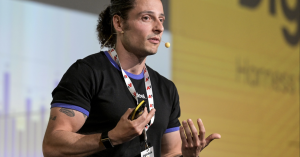We all have this friend who works at a remote-first company and appears to be living their best life. They see their colleagues once a month for a weekend in the mountains. And although they spend hours on online calls every day, they seem to have a healthy relationship with their workmates. And you can’t help but wonder: “How can they be so satisfied with this remote team? They don’t even share a coffee break for bonding! ”
We hear more and more about remote-first companies and flexible work-from-anywhere job offers. But what does it mean to work in a team with a remote-first culture? And how do employers of remote companies build a sustainable environment for their remote employees?
In the name of achieving a good work-life balance, remote teams use a lot of documentation and asynchronous communication. They take ownership over their projects and work at their peak hours of productivity, without distraction and occasional interruptions.
However, instead of this scenario, employers can end up with an unsupervised remote workforce that is unaccountable and not delivering quality work. To avoid that, companies should first build a good remote culture – one that is based on a sense of belonging and connection between remote workers.
In this expert roundup, find out some actionable advice on building and sustaining a strong company culture in a remote-first environment.
5 experts – 5 five keystones of remote-first culture
According to the Organizational Psychologist, Evelina Prodanova, who is Associate People Enablement Partner at Remote, people have an inner need to feel like they belong in a company, no matter if it is a fully remote one or such with a different operating model. And belonging is created when there is trust, respect, and genuine care for the people around you. “Making sure that these three things are reflected in the values on which the organizational culture is based and living up to them is what will make a culture strong. And this applies to everyone at all levels as the culture is a collective of the behaviors of everyone on the team, so in our world, every team member has a voice but is also expected and kept accountable to lead by example with values-based actions,” she shares.
Here is the actionable advice of remote company experts on building and sustaining a strong company culture.





Best examples for remote-first culture in action
Evelina Prodanova gives an example of a best practice that she implements in her company to boost the culture. At Remote, they discourage unnecessary meetings, and overworking and do not honor micro-managing.
- “We trust the people we hire from day one. We value our team’s life outside of work and make sure that our policies are allowing everyone to enjoy their festive moments or feel supported in the difficult ones. We practice unlimited PTO with a “no ask, must tell” requirement for any time under 20 consecutive business days where everyone is expected to own their work and simply prepare their team with a handover plan for the time they will be away. This is heavily connected to our value of ownership. As “transparency” is another value we practice, we have our Code of Conduct (Company Handbook) published publicly, so more examples can be found there,” she adds.
- At Pluria, Andrei Cretu provides a monthly budget for teams to re-connect in offline settings.
- While Mindromeda implements a weekly team call where everyone gets to share highlights of the week. They share what was challenging, what went great, the top 3 positives of the week, and what they would like to share with the rest of the team to improve the spirit.
- Meanwhile, Motion Software introduced a new concept of remote work – combining nature and technology. The company gathered all its employees for a week “back at the office”. The team spent a week co-working and co-living in Garmen village in southwestern Bulgaria to enjoy some good food, sports, and hikes together.







